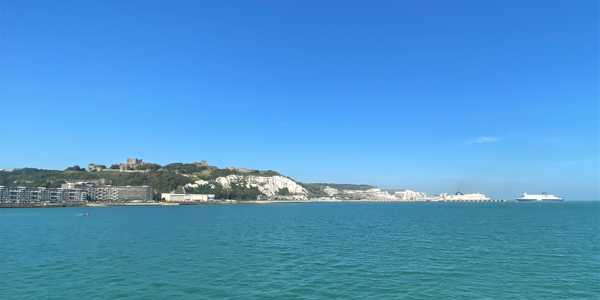
Sampling
Legislation requires certain consignments to be subject to sampling, and…
Read more about SamplingThere are specific conditions and procedures for the import of polyamide (nylon) and of melamine plastic kitchenware/tableware originating in or consigned from China and Hong Kong to GB set up by Regulation 284/2011.
Plastic Kitchenware/Tableware is defined as plastic materials and articles falling under CN Code ex 3924 10 00:
NB the above definition is not the same as the definition used in the Customs code.
To import plastic kitchenware/tableware originating in or consigned from China and Hong Kong you will need to submit a notification to Dover Port Health Authority for each consignment. With each notification, it is expected to have a completed declaration (PDD) and a laboratory report confirming that the consigned goods meet the legal requirements concerning limits set down in the law for the release of primary aromatic amines and formaldehyde.
Polyamide (Nylon)
The report must demonstrate that the item does not release primary aromatic amines into foods (or food simulants) in a detectable quantity. (The detection quantity is 0.01mg/kg.)
Melamine
The report must demonstrate that they do not release into foods (or food simulants) formaldehyde in a quantity exceeding 15 mg/kg.
Consignment contains kitchenware from China/Hong Kong that does not contain polyamide or melamine and has been stopped by customs, what can I do?
The CN code 3924 100 11 should be used for plastic kitchenware/tableware from China/Hong Kong specifically containing polyamide or melamine. If your item is made from any other type of plastic then this code should not be used. Please see the trade tariff website to show the classification of goods and the import controls in place. Trade Tariff: look up commodity codes, duty and VAT rates - GOV.UK (www.gov.uk)
If your consignment has the wrong CN code, then you would have to demonstrate to DPHA that the goods do not contain polyamide or melamine, or that they are not a food contact item.
This would be in the form of a product specification, listing materials and composition of the product.
You must pre-notify on PHILIS at least two working days (Monday-Friday 09.00-17:00 hours) before the consignment is due to arrive.
Documentary checks are carried out on 100% of consignments, identity, and physical checks (including laboratory analysis) are carried out on 10% of consignments.
Documents required:
Plastics Declaration Document:
All the articles declared to us on a single Declaration document will be treated as a consignment.
It will not be possible to change the defined consignment by adding or removing items once checks have begun.
Sampling activity is based on the defined consignment as notified to us by the Declaration document.
Where multiple items are included on a Declaration and any sampled item from that consignment is found to be unsatisfactory, the whole of the consignment covered by the Declaration will be refused entry and dealt with in accordance with the findings of the analysis.
The consignment was not pre-notified, and the entry has gone Route 1 and requires Port Health Release, what happens next?
If the goods have already arrived and have gone inland (outside of the Dover district) then DPHA cannot endorse the PDD. We will refer this to the inland authority to take enforcement action.
If the goods have not left Dover’s jurisdiction, you must still notify via PHILIS. Please note that you may incur a late notification fee if the consignment is not pre-notified on time.
Does the truck have to stop in Dover on arrival?
This depends:
If the consignment is selected for sampling, the truck must follow instructions given to the agent regarding the sampling process.
If the consignment has not been selected for sampling, but there is an issue with the documents preventing or delaying endorsement, then the truck must remain in Dover until the documentary check is completed the Port Health Authority.
If the documentary check is satisfactory and you receive the endorsed PDD via email before arrival, then the truck does not have to stop on arrival in Dover.
Please note import controls must take place in the Dover district. The goods cannot be transferred to an ETSF inland. If the goods go inland before checks are completed, then this will be referred to the inland authority to take enforcement action.
Analytical Reports - Each product must be covered by an analytical report. The report must show satisfactory results for primary aromatic amines for any polyamide items, and satisfactory results for formaldehyde for any melamine items.
Invoice/Packing list - You must submit the invoice/packing list. These must clearly show the item numbers, description, quantities, CN code, and country of origin for the items listed.
Transport Documents – this is to show the truck details, place of destination, date of arrival and description of the load.
Customs Entry Number – you must provide us with the MRN. Once documentary checks are completed and satisfactory, we will need this number to contact the NCH to release the consignment.
Plastics Declaration Document – this must be completed through the PHILIS system as part of your pre-notification. Please ensure this is signed by the importer.
Port Health will endorse the declaration indicating whether the goods are acceptable or not.
The Port Health Release notification is accepted by the HMRC National Clearance Hub as evidence that checks have been completed. Otherwise, a copy of this declaration will need to be supplied to Customs as evidence.
Satisfactory checks
On satisfactory completion of the checks, consignments may be released for free circulation into Great Britain.
Unsatisfactory Checks
A legal notice will be served setting out reasons for failure and the options available.
Products failing to satisfy import conditions may be re-exported to a country outside of Great Britain. However, if the consignment is deemed to be a risk to human health, or where the person responsible for the consignment fails to comply with a direction to re-export, it must instead be destroyed under supervision.
Polyamide kitchenware articles may be shredded and melted, and the resulting product formed into articles for purposes other than for food contact (if suitable facilities are available).
All costs for destruction are to be met by the person responsible for the consignment.
Dover Port Health will contact you to tell you if your consignment is subject to sampling upon arrival at Dover and give instructions on the procedure to follow.
These checks are conducted at Dover Cargo Terminal by Port Health Officers. If your consignment has been selected for sampling, the remainder of the consignment that has been sampled must be detained in Dover until results are returned from the laboratory.
The vehicle, driver and any other products not being sampled (or otherwise controlled) do not have to stay at Dover but the importer may prefer that they do, depending on the anticipated turnaround time of the sample results and other commercial interests.
If your consignment fails laboratory testing, please see our guidance regarding Retesting of Failed Laboratory sample.
Fees are payable for checking documentation and examination or sampling consignments should it prove necessary.
Our current fees and charges can be found on our Port Health charges page.
Please email porthealth@dover.gov.uk to set up a payment account prior to the arrival of an Import.
Plastic kitchenware from China/Hong Kong, consigned from the EU, will be subject to the controls laid out in assimilated Regulation 284/2011.
PDDs endorsed in the EU will no longer be accepted. Importers must pre notify and submit the PDD/test report(s) for documentary checks to be completed and sampling to take place at the frequency of 10%.
Notification should be made via PHILIS and a PDD submitted via email 2 days in advance of arrival of the consignment.

Legislation requires certain consignments to be subject to sampling, and…
Read more about Sampling
The port health and food safety charges for 2025/26 are outlined below. …
Read more about Port Health Charges
Importers (or agents on their behalf) are required to notify Dover Port …
Read more about Pre-Notification